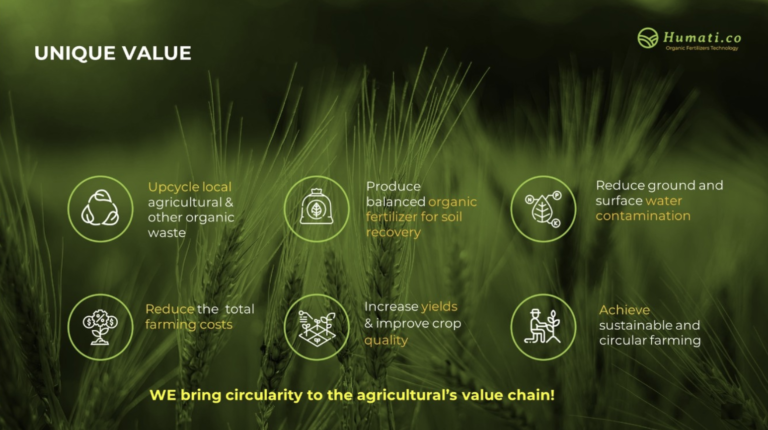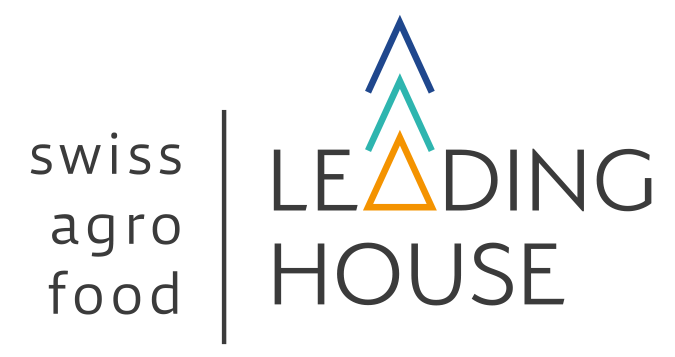A on farm site, mobile reactor for better agriculture nutrients management and stabilization
by Kasia Geiger

One of the main issues in agriculture is a proper nutrients management and nutrient equal distribution among the regions.
Where the soil is not fertile enough, chemical fertilizers need to be introduced -worldwide we use over 200 million tons of chemical fertilizers. But why having globally approx. 1 billion cows, which can provide a perfect alternative for the chemical status quo, we still do produce chemical NPK?
Manure as a natural fertilizer has been used on farms for centuries, is widely available and now it can be turned into a multibillion swiss franks business. To achieve it, there is a solution needed, which allows an easy handling to make the not as easy to deal manure a ready to use, stabilized and standardized finish product for the soil fertilization.
According to the research of Iowa State university, cost of storing, hauling and applying manure at the farm is on average $104.10 per head per year.
The manure produced on the dairy farms started to be a serious problem as a cow is able to produce 45kg of manure per day, what makes 16 tonne per year (approx.130kg CO2e/yr). Just in Europe there are almost 80M heads, what makes a huge emissions source but also a great source for material, what can be upcycled.
Not controlled manure storage or spraying can harm the soil, can be a source of pathogens and can pollute ground and surface water.
Our solution is a on farm turn key technology, which turns the manure into dense, stabilized product, which can be easy applied, stored and transported without nitrogen losses. Upcycles nutrients to a fully functional fertilizer alternative with customization potential. The reactor can upycle also other organic by-products from farming operations like greenwaste, post-harvest waste, sawmill etc.
The main research question and the goal of the project is to validate the thesis of technological solution of usage of supercavitation based reactor to prove the above thesis.
The Project Thesis:
The reactor is able to separate water from manure and condensate nutrients for easier mass balance management. The recovered nitrogen is stable and has significant less losses compered to manure nitrogen. The process helps to recover up to 80% water from liquid manure and make the manure transports cheaper and more ecological.
The usage of separated solids mixed with other organic farm waste can be considered as biogas feedstock, biochar feedstock or base for humic acid production – what gives the full circular usage of all byproducts and turn them back as renewable sources of energy and raw materials.
We make manure easy to store and transport, easy to apply as NPK standardized equivalent and recover water too.
Farmers do not need more work and cost, farmers need efficiency and balanced nutrient management to achieve the correct mass balance and good harvest. Our reactor is the one stop shop answer for the future agriculture challenges.
The disruptive level of the idea is supported by the fact that farms with too high nutrients balance have no on farm, affordable solution to make their farm and nutrients management easier, more efficient and environmental friendly. Our rectors can help a famer to recover water, condense the nutrients, make it cheaper for transports due to lower volumes. Finally a stabilized end product could be use by chemical companies as an organic raw material to mix it with chemical fertilizers giving a farmer an additional revenue stream.
The main actors and stakeholders of the project are priory on one hand the farms/ framers as such, cantonal/ national authorities, and research institutes.
The farmers as main users and pain point holders will collaborate on the level of sample delivery, on site tests, pragmatic end user interviews and data collection, and future implementations of the technology.
The cantonal/ national authorities provides the framework of mass balance restrictions.
Specialized laboratories will deliver the analytical data on the samples and lab scale processing for nutrients condensation and water recovery.
The team brings a founded knowledge and an academia and business mix topped with experience in agronomy, farm management, fertilization, nitrogen fixation, multifunctional challenges analysis of future farming, economy and sustainable value chains.
The project has all 3 components of sustainable impact.
The project supports better nutrients management on farm, introduces a full circularity of agriculture by-products and not eatable waste.
This helps to reduce emissions from not controlled waste storages, bind better the CO2 and nitrogen in the soil and fully replace chemical fertilizers. There is a potential to reduce up to 95% of CO2e emissions in comparison to chemical NPK fertilizer usage on farm.
- Social impact – circular economy implementation, better organic food production, healthier end consumers
- Environmental – significant emissions reduction from farm operations, water recovery from liquid manure, emissions reduction from manure transport, ground water protection, soil protection and top soil restore
- Economical – cheaper farm operations, easier process for nutrients management, additional revenue stream for farmer
The funding will be used for:
Analytics:
- Sampling logistic and laboratory analysis
- Lab scale test of manure separation and concertation
- Lab analysis for the condensed nutrients and stability of nitrogen molecules
- Water quality analysis
Consulting and advisiory:
- Consulting from Agroscope for the data analysis and interpretation from the
Research conducted on manure samples and processed output
- LAWA consulting services for Nutrients and resource protection information
- Life Cycle consultancy Green Dreams Lab
Implementation
- Sample taking and sending
- Travel related to the research project incl. on farm meetings
- Basic lab equipment
In the best case scenario, we validated positively the InnoBooster funding project, we proved the possibility of water separation and stabilization of nutrients, the next organic step will be the application for an InnoSuisse grant and start of a collaboration with local dairy farms as early adapters.
